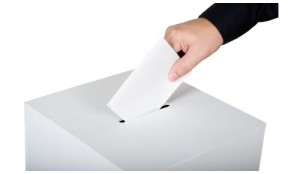This is how I spent yesterday morning: jumping in a lake, mountain biking over rocks, roots and gravel, and running the trails around Kelso Quarry. All in all a complete blast!
This is how I spent yesterday morning: jumping in a lake, mountain biking over rocks, roots and gravel, and running the trails around Kelso Quarry. All in all a complete blast!
In theory, running should be the most undramatic of sports. The requirements are simple; you turn up at the start line, and when the horn sounds you run the allotted distance to the finish, at whatever pace you are capable of maintaining.
However yesterday’s inaugural Barrie Half Marathon drove home the point to me that even a simple half-marathon can be a dramatic event. 
It started well, with the course taking us around Kempenfelt Bay on trails that I train on regularly. This was home ground, and kept my breathing steady and my body loose.
The course brought us back past the start/finish line about half-way through the race. I crossed the 10k marker enjoying the cheering crowds, running well and on pace to finish close to my personal best time.
A few minutes later I passed the 11k marker limping on knees that had suddenly refused to work. My quads had tightened up and I my legs would only allow me to run a hundred metres or so before requiring me to stop, stretch, and walk.
So, I walked, limped and hobbled the next ten kilometers. This was a humbling experience for me – I’m used to experiencing races if not from the front, then at least from well up into the ‘business end’. This time, first I watched the guys I’d been pacing out with vanish into the distance, and then most of the rest of the pack run past me. At about 17k I was dropped by a guy with only one leg.
Now, this being running, everyone was supportive. Practically every runner and volunteer called out encouragement or checked if I was OK. And so, despite running probably the slowest race of my life, and crossing the line at two hours and five minutes, I finished.
And it was worth it.
 New technology of the week, and hot contender for the title of ‘my current favourite language’, is coffeescript.
New technology of the week, and hot contender for the title of ‘my current favourite language’, is coffeescript.
I’ve thought for a long time that javascript is a horrible language with a wonderful language inside trying to get out. Coffeescript may well be that language. While at it’s heart it is still fundamentally javascript, and can be used anywhere javascript can (so far I’ve used it in node.js and in the browser), it steers you around the worst mistakes of the underlying language. Variable scoping and binding is handled better, function declarations are clearer, iterations and comprehensions are integrated neatly into the language, and your code can be more succinct.
This week I re-wrote our mobile web platform, replacing our existing jquery-ui based rendering with coffeescript and backbone. There was definitely a learning curve involved, but the effort was worthwhile; and now we have a code base that is considerably more manageable than the previous version.
Examples
l=[1,2,3] square = (x) -> x*x squares = (square(x) for x in l)
Or even
squares = (x*x for x in [1,2,3])
And from our actual code: we store data as json-encoded strings in the browser’s local storage. This function takes a predicate (i.e. any function that returns a boolean) and uses it to find the keys of all elements in local storage that match.
view : (predicate) -> (key for own key,value of localStorage when predicate (JSON.parse(value))
Which could then be used to get all objects that have a field ‘type’ set to ‘response’ as follows:
dockeys = view (doc) -> doc.type=='response'
Neat, huh? Head over to http://jashkenas.github.com/coffee-script/ and try it out yourself!
 I was listening in the car today to a CBC phone-in discussing the election. One caller made the following point, which I found very telling:
I was listening in the car today to a CBC phone-in discussing the election. One caller made the following point, which I found very telling:
“I took the CBC Political compass, and came up as Green. I like the Green platform, I agree with the Green party’s policies. But I could never vote for them because it I can’t take the risk of voting for a third party and letting the Conservatives win.”
This represents to me one of the big misunderstandings of our political process. We need to remind ourselves that we do not vote for parties, we vote for people. We are not electing a prime minister, or a party, but a LOCAL representative.
Driving through the city I see lots of boards with peoples names on it. So I know that Patrick Brown is ‘blue’, Colin Wilson is ‘red’, Myrna Clark is ‘orange’ and so on, and I find myself wondering whether a person’s character can really be summed up by a an HTML colour code. Is Patrick Brown more interesting than #00008B Dark Blue? Surely Colin’s family knows that he has more depth of character than #FF0000 Red?
We elect people, not parties. As I’ve said before, and will say again, what matters is the competence and integrity of the individual. I don’t know how I’ll vote yet on may 2nd, but I do know that I’ll make my decision based on my best assessment of the character and abilities of the candidates, not the color of their signs. Anything less is to ignore the humanity of both the candidates and the people they represent.
The first, and so far only, election flyer that I’ve received is from Colin Wilson. It highlights Liberal values, such as “investing in programs that continue to reduce the crime rate, rather than building new prisons”, which I found a welcome contrast to Brown’s ‘tough on crime‘ stance. It also included an invitation to “drop by the office to have a chat with Collin”, so that’s exactly what I did.
My impression? So far, top marks for Colin and his team. Despite having to prepare for a debate this evening, Colin graciously took the time to meet me and answer some of my questions. As I’ve said repeatedly, competence and integrity are two values that are critical for any political candidate. Colin mentioned to me both his 12 years of experience managing project teams in the private sector and his 10 years working in government. He can certainly reasonably claim the experience and competence to be an effective MP.
Colin also has a desire to bring high-tech and green jobs to Barrie. The city certainly needs a concerted effort in this area, and it will be interesting to see what definitive proposals are developed to help the city continue it’s transition from an industrial to a knowledge-based economy.
As the Barrie Examiner pointed out last week, running an election campaign can be an expensive process, but so far it seems that it’s a challenge that Colin and his team are tackling with gusto.
If you want a chance to hear and meet the candidates, the next debate is on the 14th at Barrie City Hall. Democracy only works if the electorate engages actively, so come and let your voice be heard.
 As I try to comment on the unfolding election campaign, I’m faced with the challenge that I don’t actually have a clue what messages the party leaders want me to hear. This is probably my fault, because I have intentionally crafted a lifestyle that is as free as from corporate and political communication. I rarely watch television, I switch radio channels as soon as a commercial comes on, I use email spam filtering, and I do this for a reason. I don’t want my mental environment to be dominated by messages that tell me that I’m nothing more than a consumer of goods and services, that my value is directly tied to the amount that I consume, and that the only valuable decisions I can make in life are picking between competing brands.
As I try to comment on the unfolding election campaign, I’m faced with the challenge that I don’t actually have a clue what messages the party leaders want me to hear. This is probably my fault, because I have intentionally crafted a lifestyle that is as free as from corporate and political communication. I rarely watch television, I switch radio channels as soon as a commercial comes on, I use email spam filtering, and I do this for a reason. I don’t want my mental environment to be dominated by messages that tell me that I’m nothing more than a consumer of goods and services, that my value is directly tied to the amount that I consume, and that the only valuable decisions I can make in life are picking between competing brands.
The flip side of this is that at the moment, I have no idea what Harper, or Ignatieff, or Layton, want me to hear. I’ve so far not seen or heard a political ad, or received a campaign phone call.
In general, I’m happy about this. I’m not inspired by the same-old approach to electioneering; the lawn signs, the commercials, the robo-dialers and the tired game of tightly controlled political ‘messages. I’m not inspired by the so-called ‘debates’ that are more about posturing, scoring points, reassuring the base and spreading fear and doubt about the opposition than about a genuine, honest exchange of ideas.
There seem to be very few politicians that are willing to engage in a real discussion with the electorate; although occasionally I witness a counter-example. A few weeks ago on the popular internet discussion site Reddit.com Anthony Weiner, answered questions in the “Ask Me Anything” section. Instead of getting a staffer to post pre-packaged soundbites, he actually engaged with the argumentative, sometimes rowdy commentators. I think this is a hopeful development, and one I’d like to see more of. Candidates are asking to be allowed to represent the people, and if they choose to present monologues rather than engage in dialogue with the electorate, then they are not worth our support.
 So, the lawn signs are coming out. I went for a bike ride round town today and saw quite a few Patrick Brown signs, and a few NDP ones. So, at least some people are working on this campaign.
So, the lawn signs are coming out. I went for a bike ride round town today and saw quite a few Patrick Brown signs, and a few NDP ones. So, at least some people are working on this campaign.
Unfortunately, the NDP signs include a link to this site, http://www.barriendp.ca/, which is currently ‘under construction’.
As I’ve mentioned before, I consider competence and integrity to be the most important values in politics. While it can be hard to judge the integrity of candidates during a campaign, unless they make it easy for you by making clearly untrue statements, the typical election campaign does provide a good opportunity to observe the competence of a political team.
If my company was launching a major new product, and knew that it had a six week window in which to grab market share, but the website for the product was still ‘under construction’ four days after the product launch, then heads would be rolling. In general, people aren’t that interested in politics for much of the time, but the time during a campaign is a golden opportunity to broadcast your party’s message, to present your candidates, and to stimulate the conversation. Currently the NDP in Barrie is failing to do so. I’m disappointed.
So I received a flyer through the door today from Patrick Brown, making him the first candidate to get in contact with me. Unfortunately, it was clearly printed before the election was called and makes no mention of it at all.
Instead, it is a commercial for Bill C-21. It doesn’t really say very much about it, but is full of words like ‘Corporate Thugs’, ‘Parasitic Crimes’ and ‘Tough new Laws’. Clearly Brown wants to portray himself as ‘tough’.
(At this point I have to concede that yes, Patrick Brown is tough. He’s one of the very few people in the city that can beat me in a 5k run…)
However, I’m not that taken by this ‘tough on crime’ posturing. It’s worth remembering that Corrections Canada is not ‘Punishments Canada’, and has as it’s mission not just incarceration but ‘actively encouraging and assisting offenders to become law-abiding citizens’.
The cost of incarcerating a Federal male prisoner is around $87,665 per prisoner/per year. To just promote a policy of increased punishments for those that get caught does not address the cost to the taxpayer of maintaining these prisons, nor the costs to the country of removing people from the workforce. More importantly, as reflected in Corrections Canada’s mission statement, the goal of the justice system is not simply retribution, but ultimately restoration – of individuals, of offenders, and of society.*
This is the second communique I’ve received from Brown highlighting his ‘tough on crime’ stance. Every time I receive one I feel less inclined to vote for him.
* I can’t recommend a better book about restorative justice than “Returning to the Teachings“, by Rupert Ross.
CBC has made available a ‘Vote Compass‘ that purports to help you figure out which leader and party most accurately represents your political position. While I’m not sure how much value this tool has, I was very pleased to see that in the section about the party leaders, I was asked both how trustworthy and competent I thought each leader was. I’m glad that this is being talked about, because it reflects my fundamental political philosophy – discussion about policies is useless without considering the competence and integrity of politicians.
On the matter of competence, an election campaign actually gives voters a chance to judge this first hand. Running a campaign is not identical to running a country, but many of the same skills are needed. To run a successful campaign, you have to be able to get a team of people to work together. You have to agree on a message and promote it through all available channels. You have to create and execute a strategy, you have to juggle competing priorities, you have to work with a budget, and you have to do all these things while others are actively competing with you.
So, how are the local candidates doing so far? I was disappointed yesterday to see how hard it was even to find out who our local candidates were, let alone any useful information about them. Are we doing any better today?
So, overall I’m disappointed. It’s been obvious for a week that an election was coming. I would have thought that any competent candidate would have had a personal message to the voter front and center on their website the moment parliament dissolved. Now is the chance to demonstrate your competence, folks! Update your blog, tell me about yourself, why I should vote for you, where you stand, what your experience is, and what you’ll be doing during this campaign!
 So, once again a federal election approaches. I’m going to take this opportunity to observe and comment on the campaign over the following weeks.
So, once again a federal election approaches. I’m going to take this opportunity to observe and comment on the campaign over the following weeks.
Rather than just regurgitate the talking heads on parliament hill, I want to approach this from a more local perspective. With all the talk about Harper, Ignatieff and Layton, it’s easy to forget that we don’t actually elect a Prime Minister. All we do is elect a local Member of Parliament to represent our interests. The fact that they are affiliated with a political party is incidental, rather than essential, to our political system. It’s worth remembering that MPs can, and do, cross party lines and vote against their party on occasion. So I’m going to focus initially on my local candidates. I live in the riding of Barrie, and here’s what I’ve been able to gather so far about the local candidates.
I’ll add to this list as I gather more information.
As I’ve argued before, I’m convinced that the two most important qualities needed in any elected representative are competence and integrity. I’ll be keeping these two character traits in mind as I observe this campaign.